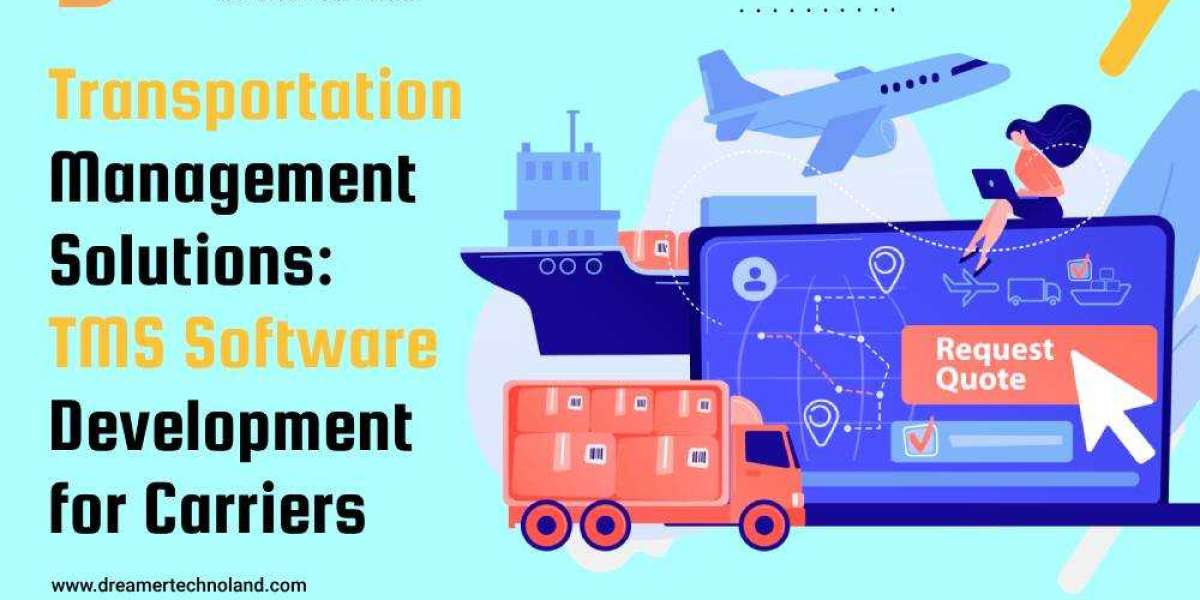In today’s interconnected, globalized business environment, shipping and logistics play a pivotal role in determining the efficiency and success of a business. As companies expand their reach, they often rely on multiple carriers to deliver products to customers across different regions. However, managing various shipping carriers—each with its own set of rules, rates, and systems—can be complex and time-consuming. This is where multi-carrier management software (MCMS) steps in to streamline operations and bring substantial benefits to modern businesses. In this blog, let’s explore how TMS systems for carriers can help businesses optimize their logistics, improve customer satisfaction, and enhance overall operational efficiency. Read till the end to know every benefit associated with the fleet management software.
Streamlined Shipping Operations
One of the most significant advantages of multi-carrier management software is its ability to centralize shipping operations. Instead of manually managing multiple carrier accounts, MCMS consolidates all carrier data in one platform, allowing businesses to manage shipments from different providers with ease. Whether it’s UPS, FedEx, DHL, or regional carriers, businesses can access all the shipping options through a single interface.
Key Benefits:
- Single Point of Control: Businesses can monitor, manage, and optimize shipping from a centralized system.
- Reduced Administrative Overhead: Automating processes such as label generation, tracking, and invoicing saves time and reduces human error.
Cost Optimization and Rate Comparison
Shipping costs can vary significantly depending on the carrier, service level, destination, and shipment size. Multi-carrier management software gives businesses the ability to compare rates from different carriers in real time and select the most cost-effective shipping option for each order.
Key Benefits:
- Dynamic Rate Comparison: The software automatically compares rates from multiple carriers based on real-time data, helping businesses make the most economical choice.
- Avoid Hidden Fees: By providing detailed carrier cost breakdowns, MCMS helps businesses avoid unexpected fees such as fuel surcharges, handling charges, or delivery area surcharges.
- Increased Negotiation Power: When businesses use multiple carriers, they gain leverage to negotiate better shipping rates and discounts.
Enhanced Customer Experience
In the age of e-commerce, customer expectations are higher than ever. Consumers demand fast, affordable, and reliable delivery options. Multi carrier management software allows businesses to provide flexible shipping choices to customers, including expedited services, same-day delivery, or international shipping. This flexibility improves the overall customer experience and drives customer satisfaction and loyalty.
H3 Key Benefits:
- Faster Delivery Times: Businesses can select the best carrier for fast delivery, improving delivery speeds and meeting customer expectations.
- Improved Visibility and Tracking: Customers can track their shipments from multiple carriers using a single tracking interface, providing real-time updates on their orders.
- Customizable Delivery Options: Offering customers various shipping options (e.g., ground, express, international) based on their needs and preferences can enhance satisfaction.
Scalability for Growing Businesses
As businesses expand, their shipping needs become more complex. Multi-carrier management software is highly scalable, meaning it can adapt to the growing demands of a business, whether that involves increasing shipment volumes, adding new carriers, or expanding into new markets.
Key Benefits:
- Seamless Integration: As a business adds new carriers or shipping partners, MCMS integrates these providers into the system effortlessly, without requiring significant manual work.
- Adaptability: Whether a business is shipping to local, national, or international destinations, MCMS can accommodate different requirements and regional carriers.
- Handling Seasonal Surges: Multi-carrier systems can scale to meet seasonal demand spikes (e.g., holidays or sales events), ensuring that businesses can efficiently handle higher shipping volumes without disruption.
Improved Visibility and Reporting
One of the challenges of managing multiple carriers is maintaining visibility into the performance of each one. Multi-carrier management software provides businesses with powerful tracking and reporting tools to monitor the efficiency and reliability of their carriers. By consolidating shipment data, businesses gain valuable insights into their supply chain performance.
Key Benefits:
- Comprehensive Data and Analytics: Access detailed reports on shipping performance, including on-time delivery rates, carrier delays, and shipping costs.
- KPI Tracking: Track key performance indicators (KPIs) such as carrier performance, cost per shipment, and customer satisfaction.
- Proactive Issue Resolution: With real-time tracking and analytics, businesses can spot shipping delays or issues early and take proactive measures to resolve them, minimizing disruptions.
Automation of Routine Tasks
Manual shipping processes can be time-consuming and prone to human error. Multi-carrier management software automates many routine tasks involved in the shipping process, such as label creation, shipment tracking, and invoicing. This automation not only saves time but also improves accuracy and efficiency.
Key Benefits:
- Label Generation: Automatically generate shipping labels, packing slips, and customs documentation for international shipments.
- Order Processing: Automatically route orders to the most appropriate carrier based on predefined rules (e.g., best rate, fastest delivery, or nearest warehouse).
- Error Reduction: Automation reduces the likelihood of manual errors such as incorrect shipping addresses, incorrect labels, or data entry mistakes.
Conclusion
As businesses expand and navigate increasingly complex logistics networks, the need for effective, flexible, and cost-efficient shipping solutions becomes more critical. Multi-carrier management software provides a comprehensive solution to these challenges, offering benefits ranging from cost savings and operational efficiency to improved customer satisfaction and scalability. By consolidating shipping operations across multiple carriers, businesses can streamline their logistics, reduce costs, and improve overall service quality, positioning themselves for long-term success in a competitive marketplace.
For modern businesses looking to scale, optimize, and provide exceptional delivery experiences, investing in multi-carrier management software is no longer just a luxury—it's a strategic necessity. Choose logistics software development provided by professional development companies that build and deliver top-tier rental software.







